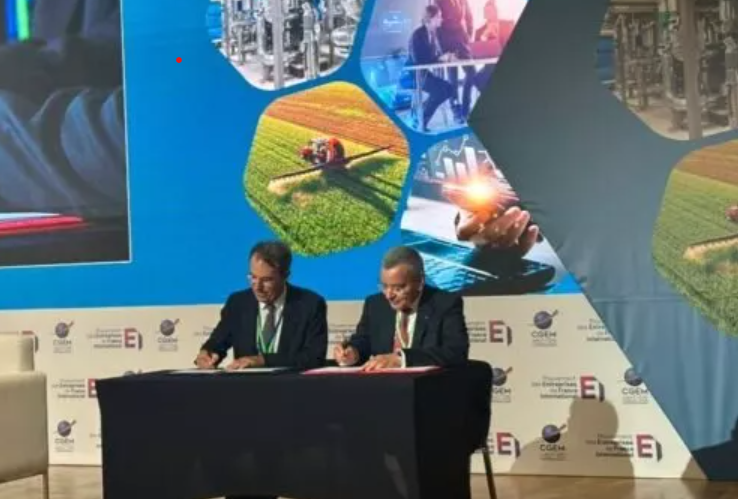A significant milestone in African telecommunications has been marked by the partnership between the Moroccan company Panafsat and Thales Alenia Space, a consortium comprising Thales (67 percent) and Leonardo (33 percent). This collaboration, formalized through a memorandum of understanding (MoU), aims to establish a sophisticated satellite communications system that will deliver very-high-throughput internet services to 26 countries across Africa. The agreement surfaced during a state visit by French President Emmanuel Macron to Morocco, underscoring the growing ties and collaborative approaches between France and Morocco in the field of technology and digital transformation. Among the dignitaries present were Nadia Fettah Alaoui, Morocco’s Minister of the Economy and Finance, and Antoine Armand, the French Minister of the Economy, Finance, and Industry.
The satellite communications system envisioned under this MoU is ground-breaking, targeting a collective population of around 550 million people in these nations, predominantly in French-speaking regions of Africa. The project encompasses an extensive geographical reach of approximately 12 million square kilometers, aiming to enhance connectivity and digital services across a diverse range of communities. The commitment to creating a high-performance, flexible satellite system highlights the emphasis on improving communication infrastructure while focusing on the unique demands of the African market, particularly in regions that currently face challenges accessing quality internet services.
At the core of this initiative is the goal to accelerate the digital transformation of Africa, moving towards a more connected and digital economy. The anticipated space assets are expected to provide the necessary connectivity that can facilitate high-value-added services, catering to the needs of governments, businesses, and individual users alike. Additionally, this ambitious project seeks to bridge the digital divide, particularly in rural and isolated areas, ensuring that underserved communities are not left behind in the ongoing digital revolution. Panafsat’s Chairman and CEO, Ahmed Toumi, emphasizes the project’s potential to transform lives by ensuring access to the internet and essential services that are increasingly vital in today’s world.
The enthusiasm shared by the leadership of both Panafsat and Thales Alenia Space underscores the importance of this agreement. Toumi highlights the project as a critical step in Morocco’s digital evolution, while also extending its benefits throughout the continent. The use of advanced satellite technology is poised to significantly enhance internet access, thus supporting broader efforts to create a digital economy that can thrive in Africa. He expresses confidence in the collaboration, trusting in the expertise and capabilities that Thales Alenia Space brings to the table to realize this major undertaking, which promises substantial advantages for millions of African citizens eager for improved connectivity.
Similarly, Hervé Derrey, the CEO of Thales Alenia Space, acknowledges the privilege of being selected as Panafsat’s partner in this venture. He reflects on the company’s expectations of the project to contribute significantly toward reducing the digital divide especially in remote areas of the continent, thereby stimulating economic growth and enhancing digital sovereignty for African nations. Derrey stresses the long-term nature of this partnership, emphasizing Thales Alenia Space’s commitment to supporting Panafsat in expanding its technological capabilities and developing comprehensive space services that can serve communities widely across Africa.
This MoU aligns with an overarching digitalization strategy between Morocco and France, encompassing public initiatives such as “Digital Economy for Africa” and “Digital Morocco 2030”, both aimed at fostering sustainable development through digitalization. Essential to the broader agenda is also the upcoming hosting of the FIFA World Cup 2030 by Morocco, which further emphasizes the country’s ambition and strategic vision. Situated within this broader context, the collaboration between Panafsat and Thales Alenia Space represents a vital step in securing Africa’s digital future amidst growing global technological advancements. By addressing both connectivity and economic growth, this project aspires not only to uplift millions but also to establish Morocco as a key player in the rapidly evolving digital landscape of Africa.














